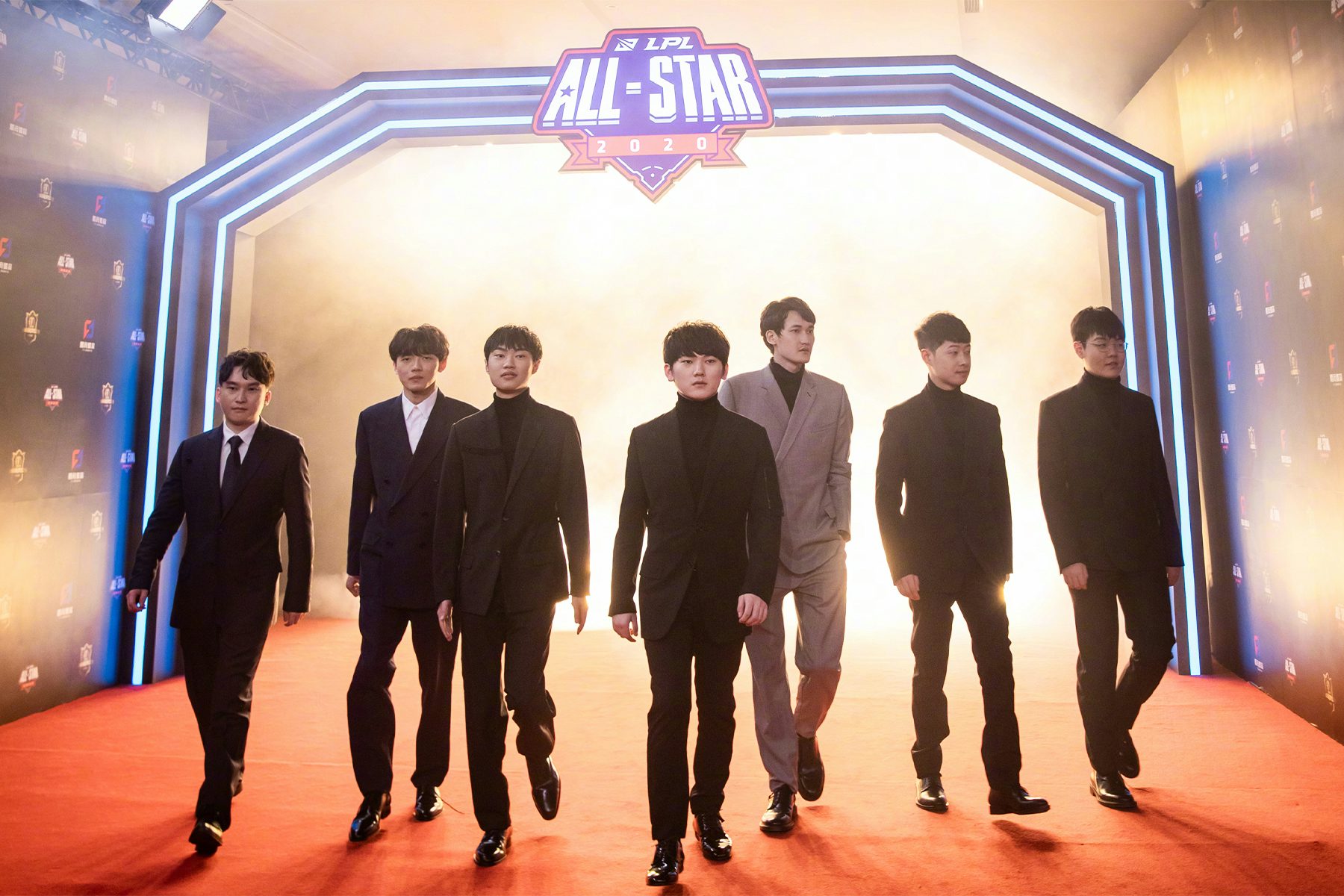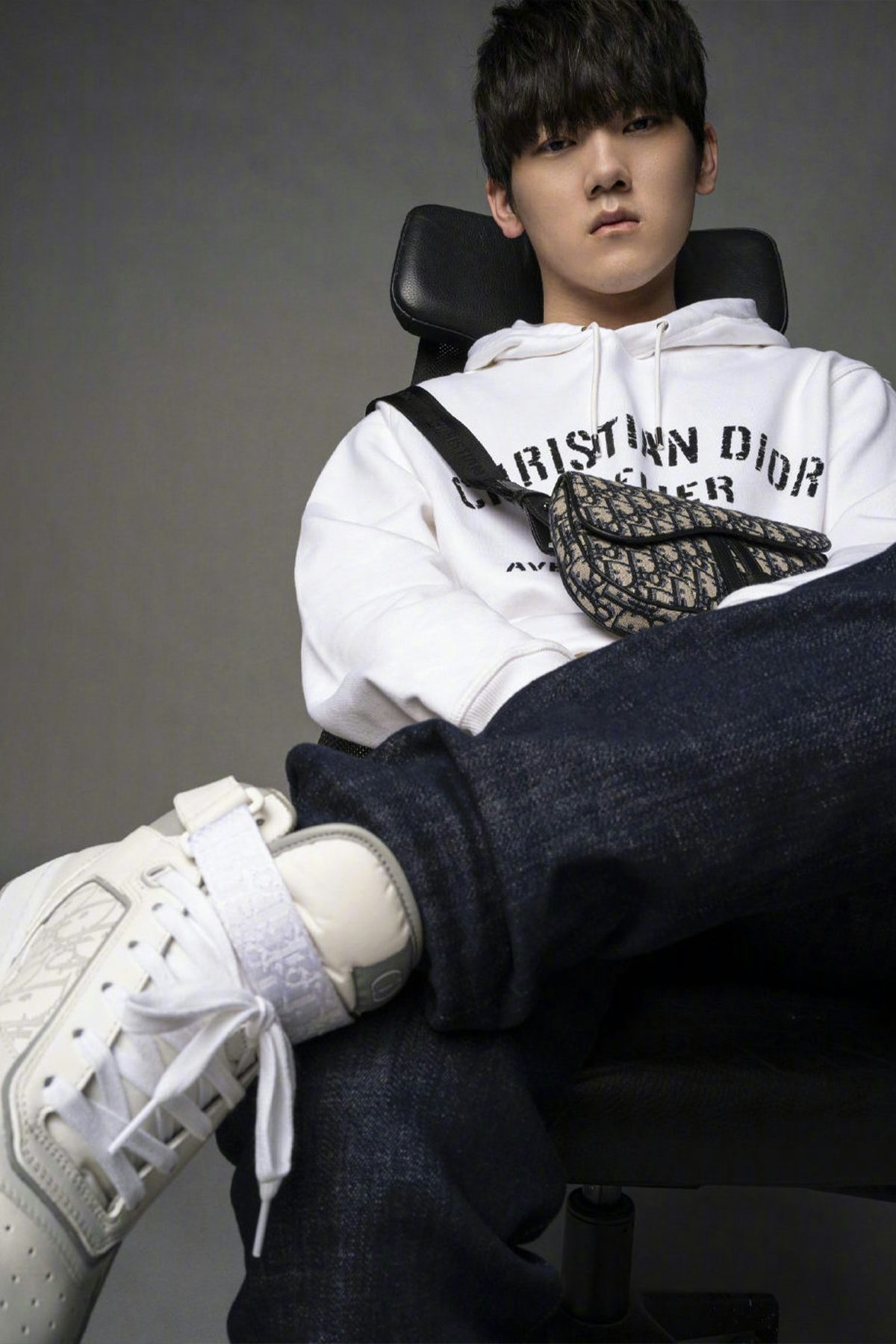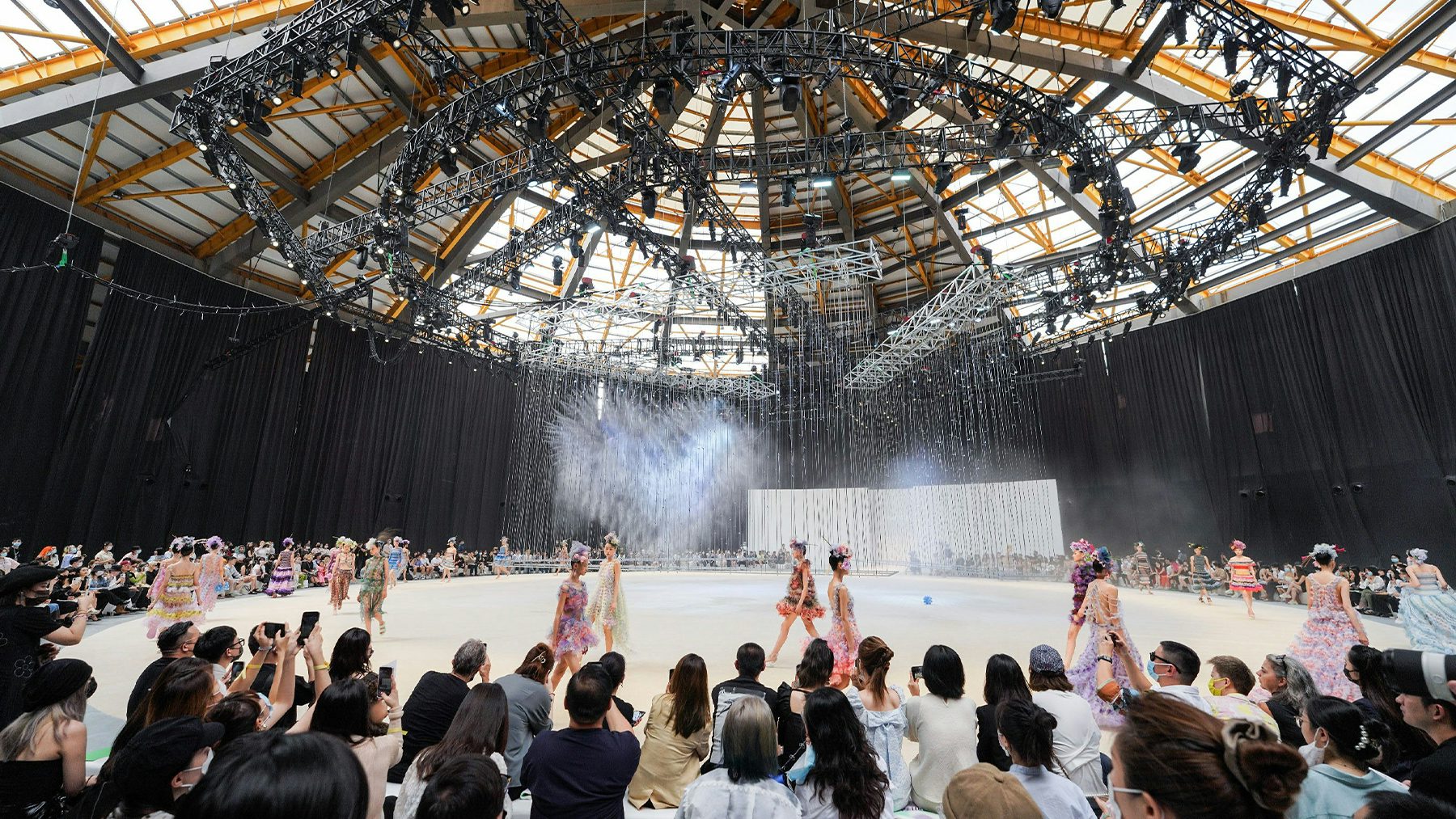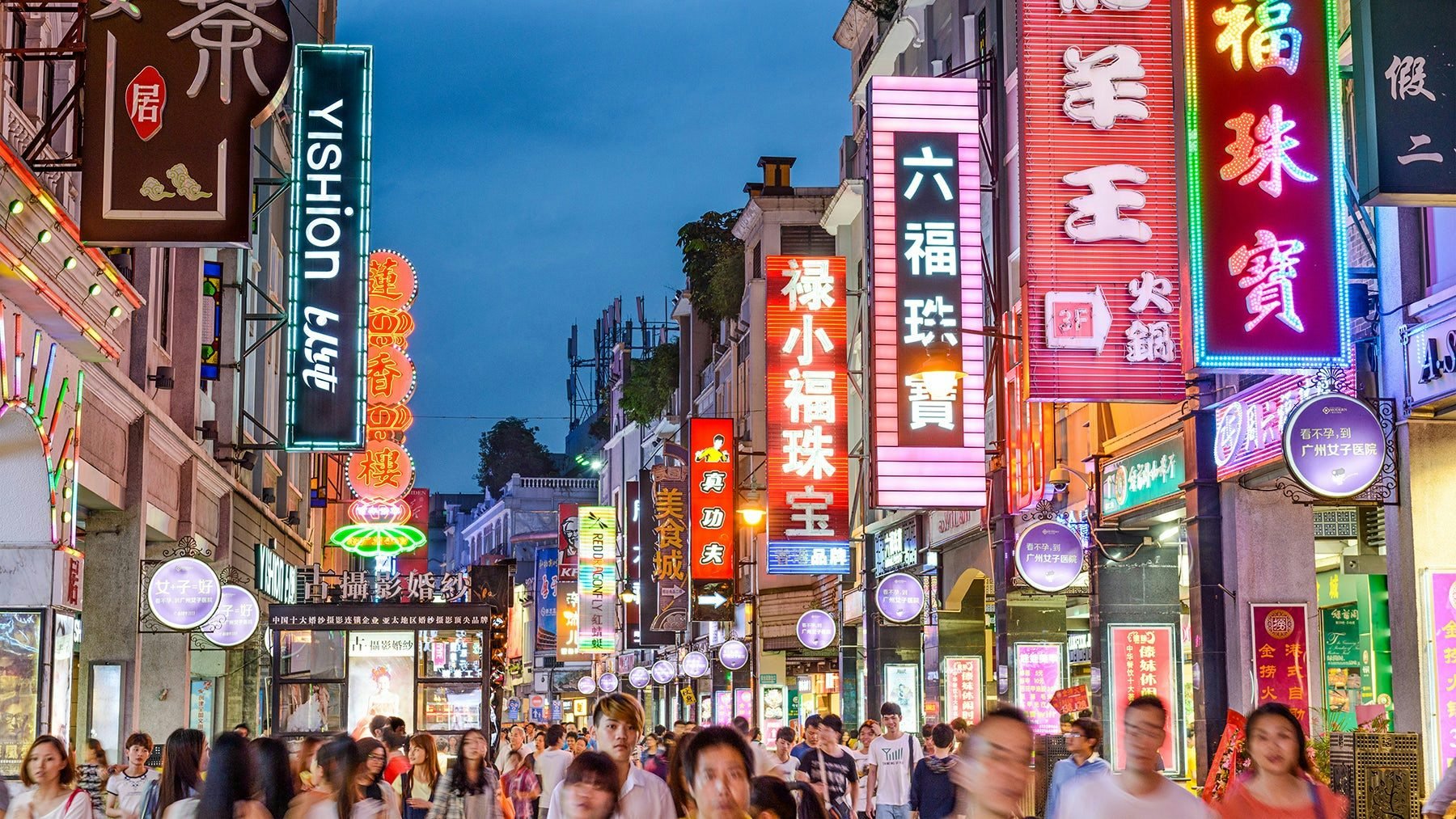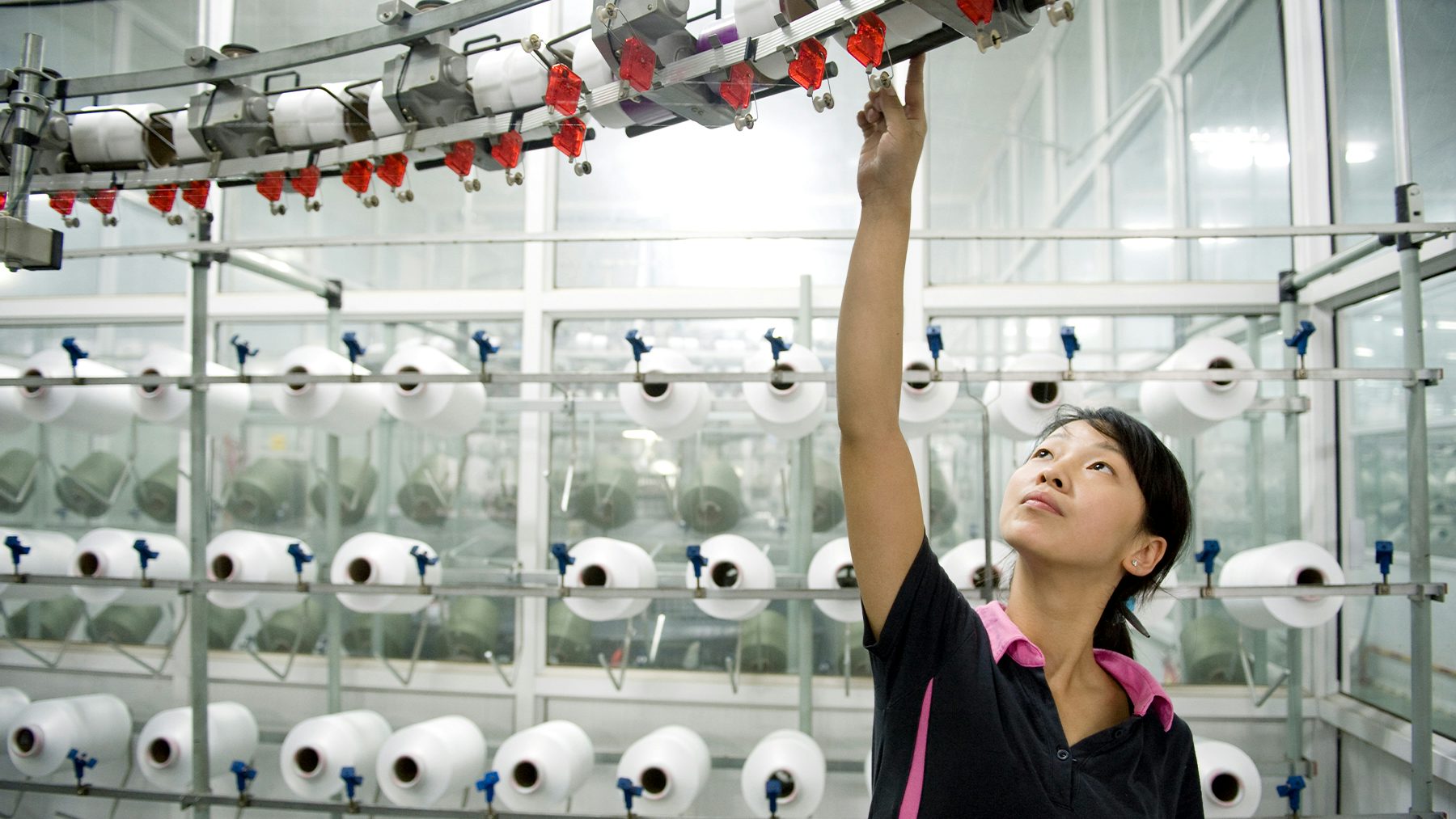Seizing Fashion’s E-Sports Opportunity in China | China Decoded, BoF Professional
At a recent Prada event in Shanghai, Duan Yushuang blended in with the beautiful crowd. It would have been easy to mistake the smiling young woman carrying a Cleo bag for one of the fashion influencers milling around the venue — but one of them she is not.
Though Duan does have over 5 million followers on Weibo, her audience is distinct from that of fashion KOLs (key opinion leaders, as influencers are known locally) who can boast similarly high follower numbers on Chinese social media platforms. As an e-sports broadcaster who simply takes an interest in fashion, Duan is a gaming celebrity in her own right and a valuable conduit for brands like Prada, Dior and Versace as they try to tap into China’s colossal e-sports opportunity.
As the host of the League of Legends Professional League (LPL), she is the face of an industry that was worth 147 billion yuan ($23 billion) in China last year, according to consultancy iResearch. The country is already the world’s largest e-sports market, with 400 million professional video gaming fans, according to the state-run newspaper People’s Daily.
Duan — who also goes by the English name Candice — is currently in Iceland, hosting the League of Legends World Championships, which runs through to Nov. 6. The tournament was initially meant to be held in Shanghai, but was moved last minute as travel restrictions made it difficult for competitors and affiliated staff to travel there.
The role she occupies bridging e-sports and fashion is to extoll the virtues of the former as an area of interest for the latter and to make herself as visible as possible when she wears the products of brand partners. Broadcasts of the championships that Duan is currently hosting will be viewed billions of times in China.
“I think the audience for e-sports isn’t as narrow as many brands might assume. It’s not just [nerdy] boys; there are a lot of girls, and a lot of those girls are also very knowledgeable about the [top] players [who are seen as] idols. Personally, I still don’t think many luxury brands know much about the e-sports industry,” Duan said.
The marketing proposition is attractive in theory: E-sports fans are likely to represent an untapped reservoir of first-time customers for many luxury brands as fans aren’t currently among their most loyal or frequent buyers. It represents a small existing customer base for a few luxury players but one that could grow significantly if users can be persuaded to spend more on either physical or virtual goods.
Despite the unparalleled scale of China’s e-sports community and some commonalities with its counterparts abroad, it must be approached as a unique subculture with its own codes and tendencies, which feed into a consumer profile that fashion brands need to study carefully if they are to convert increased brand awareness into revenues. The learning curve doesn’t end there, as China’s e-sports market is also going through a period of uncertainty, presenting brands with a unique set of challenges and risks.
Brands Sense an Opportunity
A number of fashion brands, including the aforementioned luxury players, have already dipped their toes into the e-sports pond, whether in China or globally.
Louis Vuitton’s collaboration with the League of Legends World Championships in 2019 was a multi-faceted affair that not only saw artistic director of women’s collections, Nicolas Ghesquière, design unique champion ‘skins’ for use in game, but also a real-world capsule collection. Louis Vuitton also created a one-of-a-kind trophy travel case to hold the Summoner’s Cup, awarded that year to Chinese team FunPlus Phoenix.
Gucci, meanwhile, has teamed up with several e-sports platforms to create a slew of virtual clothing and accessories for avatars, including Tennis Clash, The Sims, Genies, Roblox, Pokémon Go and Animal Crossing, along with its own Gucci Arcade, a section of the brand’s app that features Gucci-themed games, which the brand debuted in 2019.
Since 2020, Dior has collaborated with Chinese e-sports superstar JackeyLove, real name Yu Wenbo, as a “friend of the brand” (the brand’s own parlance), by inviting him to collaborate on an Air Dior capsule collection of ready-to-wear and accessories. The brand later extended this collaboration to sponsoring the rest of JackeyLove’s team, Top Esports, outfitting its players in classic men’s suits for the award’s ceremony of one tournament, for example.
The LPL team known as ‘Top Esports’ wears Dior suits as part of a sponsorship arrangement. LPL.
In a statement to BoF outlining its e-sports strategy of focusing on working with top players, Dior said that “in-depth cooperation with famous e-sports players can help attract young people to pay more and more time and attention [to brands]”… and that “star players become the bridge connecting events, clubs and the brand.”
“I think all kinds of luxury brands can cooperate with League of Legends. Maybe I can’t afford to buy a Louis Vuitton [product] in real life, but if I can buy Louis Vuitton skins in my video game, if [I am wearing] Prada, Louis Vuitton or Dior [in the game], that could make me feel more confident, happier with my game,” Duan said, adding that she doesn’t believe most brands have fully grasped the extent of the e-sports opportunity.
The China Gaming Industry Report estimates more than 46 percent of gamers in China are women, though the professional ranks are dominated by male players, many of whom sport the soft, boyish appeal that has driven China’s xiaoxianrou (little fresh meat) celebrity phenomenon for years, making them natural idols in the eyes of young female fans.
Though it seems like a straightforward enough proposition for brands to pursue once they better understand their new audience, 2021 has thrown up some significant complications to e-sports opportunity.
Government Restrictions Cast Doubt
In September, the National Press and Publication Administration, China’s top watchdog for gaming and other forms of online media, implemented a new rule, limiting gaming for players under 18 to one hour per day on Fridays, Saturdays and Sundays.
Though the majority of China’s gaming population is aged between 20 and 30, according to a report from mobile analytics provider, Mobvista, many of China’s most famous e-sports superstars were scouted for professional teams in their mid-teens, a practice that will be nearly impossible under new regulations, and which many believe threatens the country’s future as a professional gaming powerhouse.
According to Michael Norris, senior analyst at Shanghai-based market research firm AgencyChina, uncertainty about the future of e-sports in China due to the new regulatory environment combined with comments in state-owned media that video games are akin to “spiritual opium” makes China-based activations in this area risky.
Worldwide, brand engagement with the metaverse is going full steam ahead, but in terms of brand participation in e-sports here, the foot has been taken off the gas.
“Worldwide, brand engagement with the metaverse is going full steam ahead, but in terms of brand participation in e-sports here, the foot has been taken off the gas,” he said.
It’s not just limitations placed on youth gaming making life difficult for brands in bed with China’s e-sports industry. Nike became the exclusive apparel sponsor of China’s LPL in a four-year deal signed in 2019, but following controversy about the brand’s stance against using cotton sourced from China’s Xinjiang region due to allegations of forced labour in March, Nike logos were obscured on LPL broadcasts (it’s unclear whether this was by government decree or a pre-emptive move from the league to avoid regulatory trouble). Nike did not respond to BoF’s requests for comment, but according to recent local media reports, the brand remains a strategic partner of the LPL.
Since China is currently a marketing minefield in terms of both risks associated with celebrity brand ambassadors and slights (perceived or otherwise) against Chinese consumers, it would be understandable if brands take a safer path or pause major e-sports activations until there is more clarity on recent regulatory implications.
This said, the future may not be as dim for the sector as some have predicted. As Norris points out, an official ban on gaming may not work to dint their popularity among young people, even giving them the added cachet of “forbidden fruit”, making e-sports activations an edgier choice for brands willing to take the risk.
Though children will be cut off from gaming accounts linked to their own ID after playing one hour, three nights a week, there will likely be ways to thwart the restriction, for example, by playing games linked to a parents’ IDs, or making use of virtual private network (VPN) apps, to circumvent the regulations.
Moreover, despite the limits on underage gaming, there are signs that China remains otherwise officially supportive of e-sports, Duan suggests. The world’s first 7,000-seat stadium dedicated entirely to competitive video games has opened in the southern city of Chongqing. Playing e-sports was also officially recognised as a profession by China’s government in February and the 2022 Asian Games, to be hosted in the eastern Chinese city of Hangzhou, will feature eight e-sports titles as medal events, including League of Legends, Dota 2, and FIFA.
This said, for Norris, the uncertainty and potential risks mean that he advises most brands to play it safe in the immediate term.
“It’s time to take a breather,” he said. “The uncertainty is too great and the relationship — both the Chinese state’s relationship with gaming and the brands’ relationship with gaming — is too complicated.”
E-sports star JackeyLove (Yu Wenbo) worked with Dior on an Air Dior campaign. Dior.
Some brands, however, seem unperturbed by the uncertainty, with a spokesperson for Dior saying the brand is actively looking into new opportunities in the area, following the success of its early forays with JackeyLove and Top Esports. High-end Swiss watchmaker, Roger Dubuis, which has already launched two limited edition LPL models of its Excalibur Spider timepiece, similarly says it is looking to continue its relationship with Chinese e-sports.
All things considered, the high stakes of the current battle for market share in fashion’s largest market makes every competitive advantage count. In what is also the world’s youngest luxury market, tapping into youth-focused sports and sub-cultures will remain extremely important to the future fortunes of most brands.
“Forbidding children from playing computer games won’t stop them being passionate about games,” Duan points out, adding that many people (herself included) only begin engaging in e-sports and gaming at college, when they are over 18 but have a significant amount of leisure time.
“It’s a popular social activity,” Duan said. “[And these] 20- to 30-year-old players, they have the ability to buy luxury brands.”
时尚与美容
FASHION & BEAUTY
The scene at Susan Fang’s well-received Shanghai Fashion Week show. Susan Fang.
Domestic Brands Attract More Buyers at Shanghai Fashion Week
Shanghai Fashion Week has wrapped up its Spring/Summer 2022 edition, which ran Oct. 8 to 16 and included more than 100 shows on its official calendar, alongside a multitude of off-calendar and related attractions. Adjacent events included several awards announcements, including the inaugural Hu Fashion Forward Prize, which saw Samuel Gui Yang win 500,000 yuan, or $77,600. Labels that may have shown at international fashion weeks in past years showed in Shanghai — including Masha Ma (who normally shows in Paris but opened this edition of Shanghai Fashion Week for the first time), Pronounce and Samuel Gui Yang. New names also made waves, including Louis Shengtao Chen, who made great strides in only his second collection, having debuted at Shanghai Fashion Week in April. (BoF)
Former Givenchy Executive Joins Tory Burch
Tory Burch appointed Paolo Zullo as its general manager of China and senior vice president of the brand reporting to Thibault Villet, the Asia Pacific president. Zullo was the former China managing director of Givenchy and a long-time executive of Ermenegildo Zegna prior to that.
科技与创新
TECH & INNOVATION
Alibaba remains the leading platform in online shopping, but its share of China’s retail e-commerce market has fallen to a projected 51 percent in 2021 from 78 percent in 2015. Shutterstock.
Alibaba’s Share of China’s Retail E-Commerce Market Drops
For more than 15 years, Alibaba has been China’s undisputed e-commerce champion. The Jack Ma-founded company became one of the world’s most valuable businesses by using its dominance in China to strong-arm its competition. As China’s e-commerce industry matures, however, consumers have started to embrace new ways of shopping that favour browsing and interaction over targeted product searches. That trend has left Alibaba playing catch-up in some respects, and allowed competitors to gain more of a foothold in the world’s largest online retail market. Alibaba remains China’s leader in online shopping, but its share of China’s retail e-commerce market has fallen to a projected 51 percent in 2021 from 78 percent in 2015, according to research firm eMarketer. (The Wall Street Journal)
Microsoft Shutters Chinese Version of LinkedIn
Microsoft is shuttering its professional social network, LinkedIn, in China, citing the increasing challenges of complying with local requirements. In recent months, the career-networking site has faced questions and criticism, in particular for the practice of blocking the profiles of some journalists. LinkedIn will launch a jobs-only version of the site, called InJobs, later this year, but this will not include a social feed or the ability to share or post articles. LinkedIn senior vice-president Mohak Shroff wrote in a blog: “We’re facing a significantly more challenging operating environment and greater compliance requirements in China.” (BBC)
消费与零售
CONSUMER & RETAIL
China retail sales growth improved from the previous month as officials loosened restrictions introduced in August to contain sporadic outbreaks of the coronavirus. Shutterstock.
September Retail Sales Gain as China’s Quarterly GDP Growth Rate Slows
China’s housing slump and electricity shortages dragged down the country’s economic growth last quarter, with signs there will be more pain to come heading into the winter months. Gross domestic product expanded 4.9 percent from a year earlier, the National Bureau of Statistics said Monday, largely in line with economists’ projections but down from 7.9 percent in the previous quarter. On the upside, export growth surged in September, while retail sales growth improved from the previous month as officials loosened restrictions introduced in August to contain sporadic outbreaks of the coronavirus. The unemployment rate fell slightly. (Bloomberg)
Swire Properties to Build New Property in Greater Bay Area
Swire Properties has signed a cooperation letter of intent (LOI) with the Guangzhou Pearl River Enterprises Group (PREG) to jointly develop a commercial project in the Julong Bay Area, located in Liwan District, Guangzhou. The Julong Bay Area is positioned as the “West Central Business District” of Guangzhou, with strong development potential. “Following the success of Taikoo Hui Guangzhou, we are excited about this opportunity to develop a second major project in Guangzhou, in a district that enjoys rich traditional Lingnan culture and huge commercial development potential,” said Tim Blackburn, chief executive of Swire Properties. In September, the firm unveiled its third Taikoo Li shopping complex, Taikoo Li Qiantan, next to Shanghai’s financial district , boasting around 120,000 square meters of mixed-use space and boutiques from brands owned by LVMH, Kering and Hermès.
政治,经济与社会
POLITICS, ECONOMY, SOCIETY
China’s energy crisis threatens to exacerbate disruptions to global supply chain. Getty Images.
China’s Energy Crisis Could Mean Long-Term Disruption to Global Supply Chains
Factory owners in China and their customers worldwide have been told to prepare for power supply disruptions becoming part of life as President Xi Jinping refuses to budge in his mission to wean the world’s second-biggest economy off its dependence on coal. Months of shortages have cut power to households in China’s north-east and caused outages at factories across the country. But energy demand is still surging amid record demand for Chinese exports, and these problems will inevitably increase as temperatures plummet in winter. (Financial Times)
Introducing Wang Huning: The Chinese Government’s ‘Ideas Man’
A member of the Chinese Community Party’s seven-man Politburo Standing Committee, Wang is China’s top ideological theorist, quietly credited as being the “ideas man” behind Xi’s signature political concepts, including the “China Dream,” the anti-corruption campaign, the Belt and Road Initiative and even “Xi Jinping Thought.” A careful examination of most photographs of Xi on an important trip or at a key meeting worldwide reveals Wang in the background, seldom far from his leader’s side. (Palladium Magazine)
China Decoded wants to hear from you. Send tips, suggestions, complaints and compliments to our Shanghai-based Asia Correspondent [email protected].

